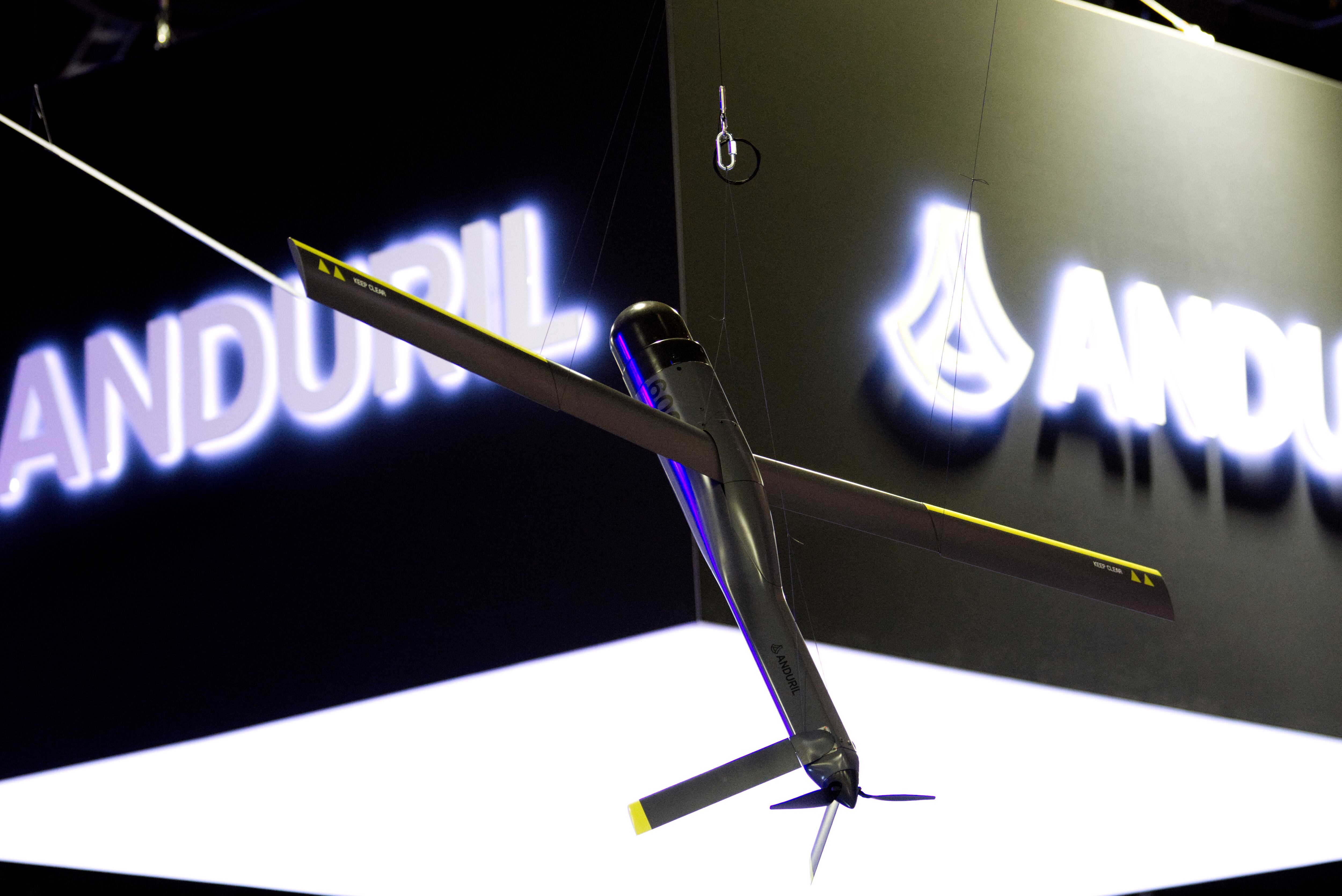WASHINGTON — Two defense companies teamed up in support of the U.S. Marine Corps to create a system capable of detecting, tracking and zapping drone swarms.
Epirus, a directed-energy specialist, and Anduril Industries, focused on software and autonomy, fused their respective Leonidas high-power microwave weapon and Lattice command-and-control program for a recent Marine Corps Warfighting Laboratory evaluation. The integration and testing was announced July 27.
The Leonidas system uses energy blasts to fry electronics, namely those aboard unmanned aerial systems. It can be used surgically, to target a single object, or more widely, to wall off an area. Lattice, on the other hand, acts as an artificial intelligence-enabled operating system, with applications ranging from air defense to border security.
“Leonidas’ successful integration with Lattice demonstrates the system’s ability to rapidly ingest and process inputs, including timing, radar track data, commands and more, through Lattice to lock and track designated targets,” the companies said in a joint statement. “When cued by Lattice, Leonidas effectively neutralizes targets, without harming operators nor blue force assets.”
Epirus and Anduril said they would continue to partner on counter-unmanned aerial sensors, command-and-control networks and other products in advancement of the Corps’ overhaul known as Force Design 2030.
RELATED

The U.S. military is increasingly concerned about drones. The commercially available equipment can be used to spy and target, as is seen in the Russia-Ukraine war, and can be strapped with explosives for deadly one-way attacks, as is happening in the Middle East. Central Command in January blamed Iran for a drone attack on a base in Syria used by U.S. and local forces.
The marriage of Leonidas and Lattice is the latest in a string of collaborative successes for Epirus. The California-based company in June said it joined forces with DroneShield and its sensing-and-jamming DroneSentry. Months before that, it worked with General Dynamics Land Systems to mount a Leonidas to a Stryker combat vehicle.
Separately, U.S. Special Operations Command picked Anduril to lead its counter-drone integration efforts. The deal, disclosed in early 2022, was worth $1 billion, Defense News reported.
Colin Demarest was a reporter at C4ISRNET, where he covered military networks, cyber and IT. Colin had previously covered the Department of Energy and its National Nuclear Security Administration — namely Cold War cleanup and nuclear weapons development — for a daily newspaper in South Carolina. Colin is also an award-winning photographer.







